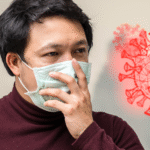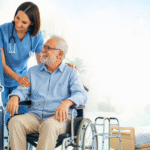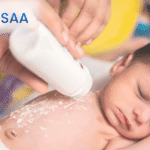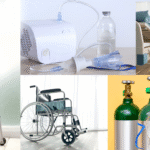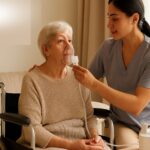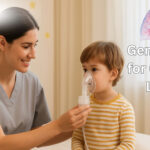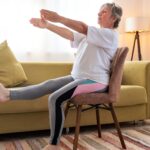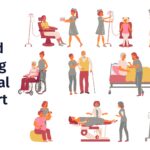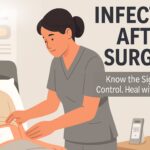
Caring for an elderly loved one whose immune defenses are weak can feel like walking a tightrope. On one hand you want them to live life, stay connected, and maintain dignity; on the other hand you fear that a simple infection could cascade into serious illness. Older adults with weak immunity are at higher risk not just from common colds or flu, but from complications of infections, slower healing, and hidden conditions like heart disease that may go unnoticed until it’s too late.
Early detection of health issues for example, spotting the first signs of heart problems can make the difference between life and emergency. That’s why combining Medical Care for Patients with attentive home observation and professional support is so crucial. In this blog, I will guide you through causes, preventive strategies, caregiver roles, warning signs to watch, and practical tips to strengthen immune protection around your loved one.
Why Older Adults Often Have Low Immunity: Causes & Risk Factors
As people age, the immune system undergoes changes that make it less efficient. Scientists call this process immunosenescence.Here are key causes and risk factors:
1) Aging and immunosenescence
- The production of new immune cells (especially T cells) slows, reducing the body’s ability to respond to new infections.
- The innate immune system (the first-line, non-specific system) becomes more “on edge,” with a tendency for low-grade inflammation (“inflammaging”) that can damage tissues over time.
- Vaccine responses tend to be weaker in older adults because of this decline.
2) Chronic illnesses and comorbidities
Conditions such as diabetes, chronic kidney disease, chronic lung disease, and autoimmune disorders can suppress immunity or require treatments (like steroids) that reduce immune activity.
3) Recovery from surgery or hospitalization
The period after surgery, prolonged bed rest, or hospital stay often weakens immune resilience due to stress, wound healing burden, nutritional deficits, and possible exposure to hospital-based pathogens.
4) Malnutrition and micronutrient deficiencies
Older adults may eat less, have poor appetite, dental problems, or digestive issues, leading to deficiencies of vitamins and trace minerals essential for immune health (e.g. zinc, vitamin D, vitamin C, selenium)
5) Medications and treatments
Some medicines (e.g. immunosuppressants, chemotherapy, prolonged steroids) reduce immune system strength.
6) Lifestyle factors and stress
Poor sleep, chronic stress, inactivity, smoking, dehydration, and social isolation all weaken immune defenses.
Because of these overlapping factors, elders often cannot rely on immunity the way younger people do. That’s why Home Healthcare Support with preventive measures becomes essential.
The Role of Medical Care for Patient at Home: Prevention, Monitoring & Action
Strong immune protection for an elderly patient doesn’t happen by chance it is built through consistent, thoughtful medical care at home. Here are key components:
1. Hygiene & infection prevention
- Frequent hand washing for both patient and caregiver (at least 20 seconds with soap) is basic but powerful.
- Use alcohol-based hand sanitizer when soap isn’t available.
- Clean and disinfect frequently touched surfaces (door handles, railings, bedside tables) daily.
- Use masks and protective gear if the patient is in close contact with someone with respiratory symptoms.
- When caring for wounds, follow strict sterile dressing and wound care protocol to prevent local infections.
2. Balanced nutrition & hydration
- Ensure daily meals include protein-rich foods (eggs, legumes, lean meat, dairy), fresh vegetables, fruits, whole grains.
- Add immune-supporting nutrients: vitamin D, zinc, vitamin C, selenium.
- Monitor for appetite loss, difficulty swallowing, or weight loss, and adjust meal plans or supplements accordingly.
- Encourage 6–8 glasses of liquids (water, soups, herbal teas) unless medically restricted.
3. Adequate rest & sleep
Poor sleep reduces immune responses. Encourage a regular sleep schedule, 7–8 hours or more if needed, and reduce disturbances (light, noise).
4. Gentle physical activity
Even light movement (bed exercises, stretching, short walks) helps boost circulation and immune cell function.
5. Stress and emotional care
Chronic stress and negative emotions flood the body with stress hormones (like cortisol) which suppress immune responses. Encourage relaxation, social connection (even by phone/video), simple meditation, or listening to music.
6. Vaccinations & medical supervision
- Keep the patient up to date with recommended vaccines: flu, pneumonia (pneumococcal), COVID (if applicable), shingles, etc.
- Ensure regular medical checkups to monitor chronic conditions (hypertension, diabetes, heart disease) that impact immunity.
- If any infection-like symptoms arise (fever, cough, urinary issues), promptly contact a physician to avoid complications.
7. Monitoring & early alert system
- Keep a daily log of vital signs (temperature, pulse, blood pressure, oxygen levels if available).
- Note any unusual fatigue, loss of appetite, sudden weight changes, or confusion.
- A quick response to early signs of infection or internal stress can prevent escalation.
In sum, Medical Care for Patients at home is your first line of defence, a daily, intentional effort rather than occasional checkups.
How Professional Patient Care Taker Services & Nursing Services Help
While family care is very valuable, professional support takes home care to a higher standard. Here’s how:
- Skilled clinical assessment and care: Home nurses can check vital signs, administer injections, manage IV lines or wound care, and recognize early changes that might escape untrained eyes.
- Strict infection control: Professionals are trained in sterilization, isolation protocols, and reducing cross-contamination risks in the home.
- Medication management: They ensure timely dosage, observe side effects, review interactions, and prevent missed or duplicate doses.
- Rehabilitation and guided therapy: Many nurse or caregiver services offer physiotherapy, mobility support, training in exercises, fall prevention, etc.
- Education and support for family: Care taker services train family members on safe handling, hygiene, nutrition, and observation of signs so everyone works consistently.
- 24/7 availability: In high-risk patients, having a service available day and night gives peace of mind and faster response in emergencies.
- Maintaining a clean, infection-free environment: From regular deep cleaning and air filtration to proper disposal of waste and linens, these services reduce pathogen loads in the home.
If you can combine Home Healthcare Support with Patient Care Taker Services or Nursing Services, you raise the level of protection significantly. Many families find this combined approach to be the gold standard for fragile patients.
Recognizing the Early Sign of Heart Problem in Patients with Weak Immunity
We must not forget: weak immune defenses do not protect against hidden organ stress. In elderly patients, heart problems may silently worsen. Because their immune system is weak, an infection or inflammatory trigger can exacerbate cardiovascular risk. Continuous monitoring is therefore crucial.
Here are early warning signs (which may be subtle) to watch for in such patients:
- Chest discomfort, heaviness or tightness (may radiate to arm, jaw, back)
- Shortness of breath, especially on minimal exertion or lying flat
- Swelling (edema) in legs, ankles, feet
- Persistent fatigue or unexplained weakness
- Palpitations, irregular or fast heartbeat
- Coughing, wheezing or difficulty breathing (fluid in lungs)
- Sudden lightheadedness, dizziness, nausea, sweating
Because some older adults feel none of the typical chest pain, these non-specific signs must raise concern.
If any of these appear, immediate medical evaluation is needed, delaying could lead to heart attack or heart failure.
In the context of immunocompromised elders, vigilance is even more important. A slight change in breathing or swelling could be due to infection, fluid overload, or cardiac stress, so they require prompt assessment.
Practical Tips & Actionable Steps
Here are concrete, easy-to-follow strategies to reduce risk and bolster immunity:
A. Nutritional Support for Immune Health
- Use small frequent meals if full meals are difficult.
- Add broths, nutrient-dense soups, smoothies with protein powder or milk.
- Include foods rich in:
- Vitamin C: citrus fruits, bell peppers, strawberries
- Vitamin D: fortified foods, safe sun exposure or supplements if deficient
- Zinc & selenium: nuts, seeds, legumes, seafood
- Protein: eggs, lentils, beans, lean meat, dairy
- Consult a doctor before giving supplements in absence of deficiency, large doses may not help and sometimes cause harm.
B. Safe Interaction Guidelines for Visitors
- Screen visitors: anyone with cold, flu, cough, fever should avoid visiting.
- Wear masks, especially indoors, and encourage hand hygiene before entering.
- Keep visits brief at first, avoid crowded or enclosed settings.
- Maintain distance as needed, and ventilate rooms (open windows, use air purifiers) to dilute airborne pathogens.
- Limit multiple visitors at once; schedule one or two trusted ones to reduce exposure.
C. Importance of Vaccinations & Medical Supervision
- Ensure the patient is current with influenza, pneumococcal, COVID-19, and other recommended vaccines.
- Before each season, consult a doctor about booster shots or antibody therapies.
- Monitor laboratory markers (CBC, inflammatory markers, kidney/liver function) as advised.
- If signs of infection arise (fever, cough, urinary symptoms, sudden fatigue), don’t wait call a doctor immediately.
D. Daily Routines & Environmental Tips
- Sunlight: allow safe sun exposure (10–15 min) for vitamin D production.
- Ventilation: air rooms and use HEPA filters or air purifiers if possible.
- Avoid overcrowding: no large gatherings around the patient.
- Disinfection: frequently sanitize high-touch surfaces.
- Rest: encourage naps and avoid overexertion.
- Emotional health: keep them socially connected, engaged, and mentally stimulated.
Conclusion: Compassionate Care & the Role of Reliable Services
Caring for an elderly patient with weak immunity is both a challenge and a calling. While there is no foolproof barrier to every infection or complication, combining vigilant Medical Care for Patient, smart lifestyle measures, and the support of Patient Care Taker Services and Nursing Services greatly raises the odds of safety, comfort, and dignity.
Your loving attention — early detection, daily logs, prompt responses — matters deeply. And when you bring in professional help, you relieve family stress, increase medical safety, and improve the patient’s quality of life.
If your loved one is recovering or living in Haryana, Punjab, Mumbai or Delhi and you need home care services, home nursing, or old age care taker support, contact us at Swaasaa Healthcare. Together, we can build a safe, healing environment for those you cherish most.
